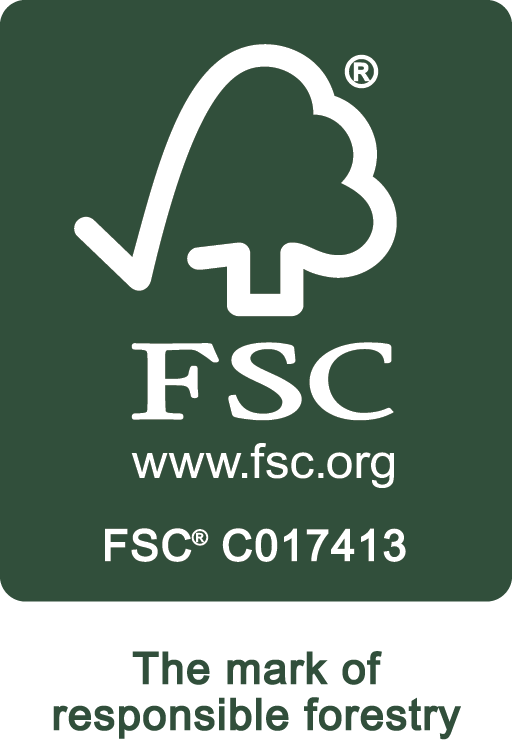As one would expect, sustainability is a subject which is naturally very close to our heart and an area where we have very strong opinions.
Of course it's in our own interests that commercial softwood plantations are re-planted once the mature timber has been felled, but good husbandry doesn't mean forcing the land to keep producing without giving it chance to recover. Much the same way that a farmer will rotate crops or leave a field fallow for a year, so too the same logic should apply to forestry.
The modern and forward-thinking forestry industry promotes the planting and felling of trees in a well-managed cycle that maximises the absorption of carbon dioxide and, at the same time, encourages biodiversity.
The production and processing of timber does more than it's share to contribute to the low carbon economy (something which we all agree is a good thing), and the subsequent end uses also continue to demonstrate timber's benefits. For example, did you know that 3 tonnes of Carbon Dioxide can be saved by using timber frame from the 20 tonne Carbon Dioxide footprint of a typical 3 bedroom detached house?
"The timber industry is at the forefront of driving low-energy manufacturing, producing high-performance low-carbon goods, and helping achieve UK carbon reduction targets."
Recent figures (Summer 2016) show that the UK is one of the least wooded nations in Europe with only 10% coverage, compared with the European average of 37%. The planting of forests isn't just a vanity exercise, the benefits are far reaching and will support our communities for generations to come.
With widespread flooding across the UK becoming an even more regular occurrance, much interest has been shown in how trees can help in cutting flood risk: "The Department for Environment, Food and Rural Affairs (Defra) says that, in the right place, woodland can reduce water flow and siltation in rivers, and is considering its role as part of an ongoing national flood resilience review."
"In managed European forests, there are five trees planted for each one harvested, making timber the only truly renewable mainstream building material." We appreciate that Europe (Scandinavian countries in particular) are further ahead than the UK when it comes to their commercial timber production, but it's an area where we are catching up and well on the road to meet their standards.
Here at Irving and Sons, we are also very aware of 'timber miles': there is a very real environmental impact to transporting timber long distances for it to then be processed, so wherever possible our aim is to acquire our raw materials from close to the sawmill - North West England, South West Scotland and North Wales.
Importing timber on a large scale simply does not stack up, environmentally or economically.
When Phil Irving established the business in 1954 he had his eye on the future: this was a business he wanted to grow for his family and he imparted his environmental ethos onto his sons, and so on to the next generation. The company strives for 'no waste', so that every part of the log can be used - sawn timber products, co-products or firewood, everything has a purpose.
Wood is still very much a material of the future, a resource that should be respected at both ends of it's lifecycle.

Article References:
Tree planting at 'an all time low' by Claire Marshall / BBC (http://www.bbc.co.uk/news/science-environment-36555858)
Is there any point in planting new trees? by Isabella Kaminski / BBC (http://www.bbc.co.uk/news/science-environment-36078295)
Countryside Stewardship Scheme (https://www.gov.uk/government/collections/countryside-stewardship-get-paid-for-environmental-land-management)
CONFOR - Confederation of Forest Industries UK (http://www.confor.org.uk/)
Wood For Good (http://woodforgood.com/)
Forestry: Delivering Green Growth (PDF download, 345kb)
Growing our Low Carbon Economy (PDF download, 2.7Mb - via WoodforGood.com)







